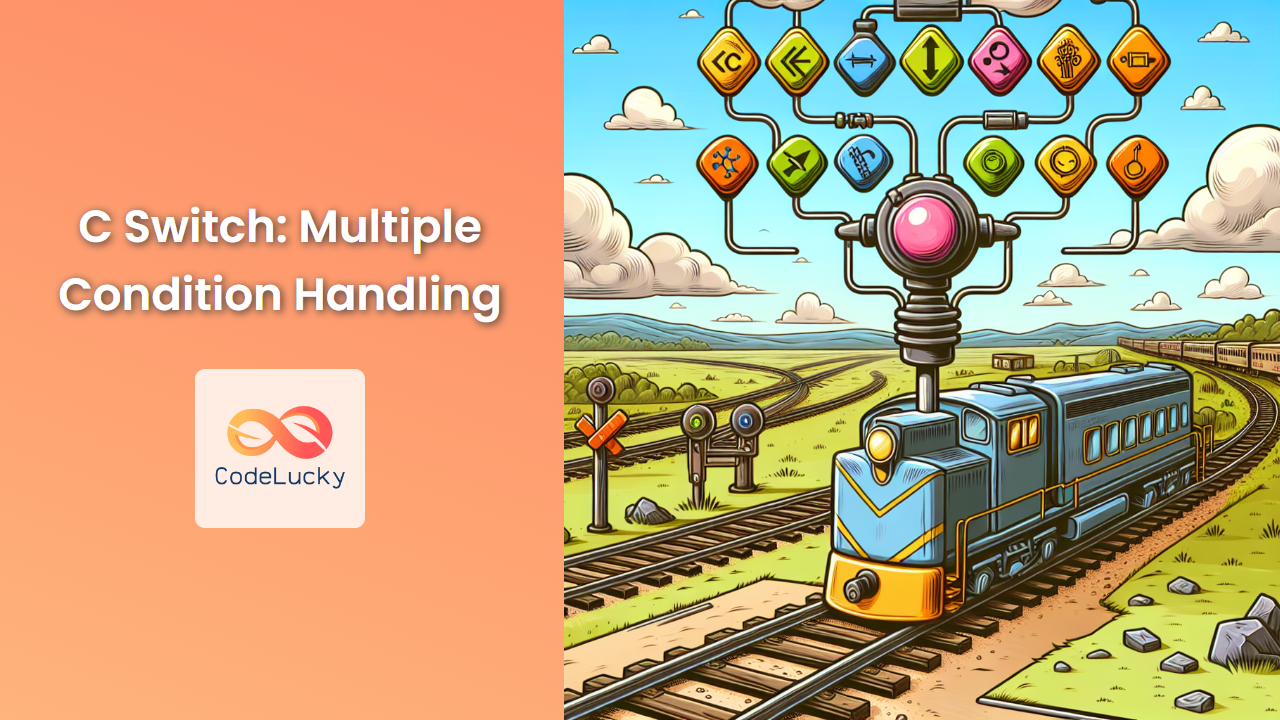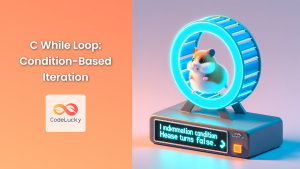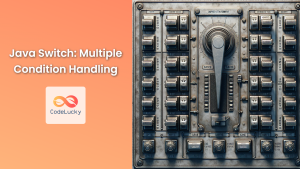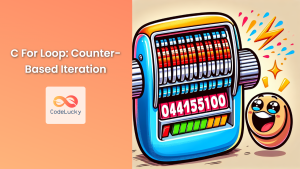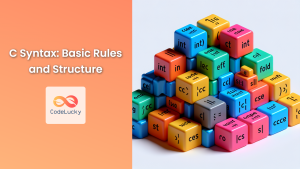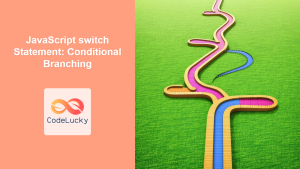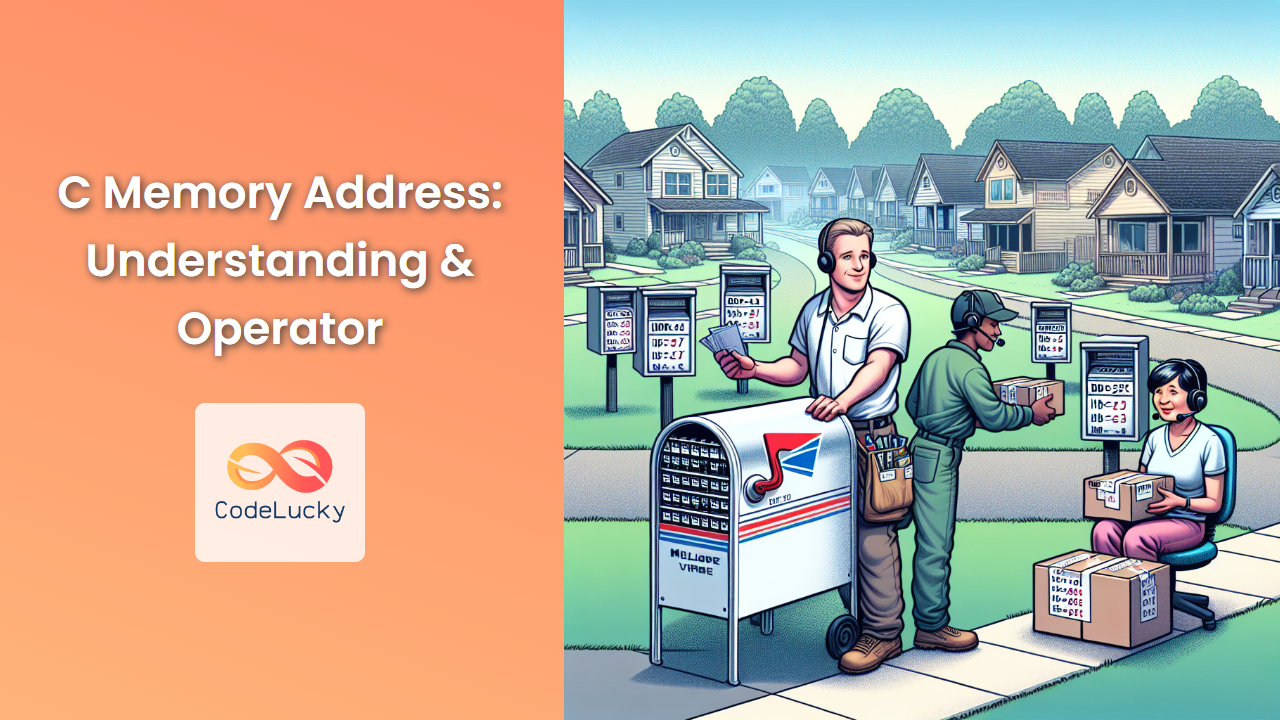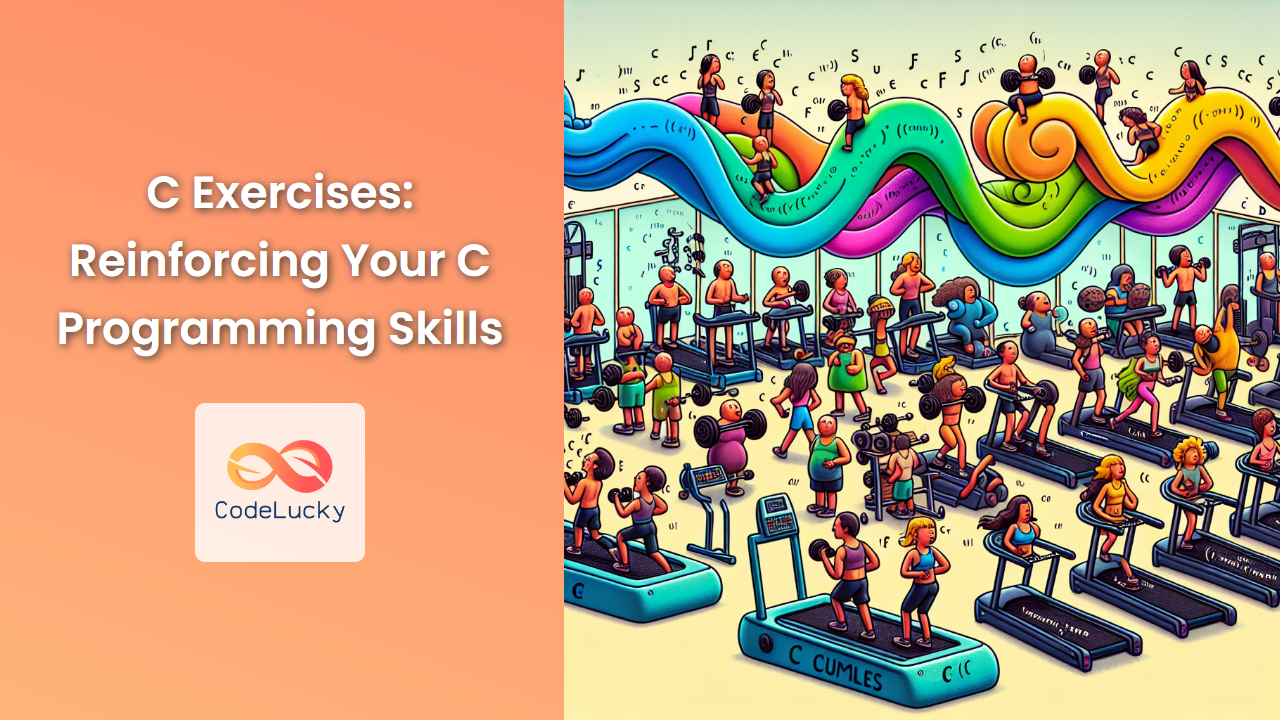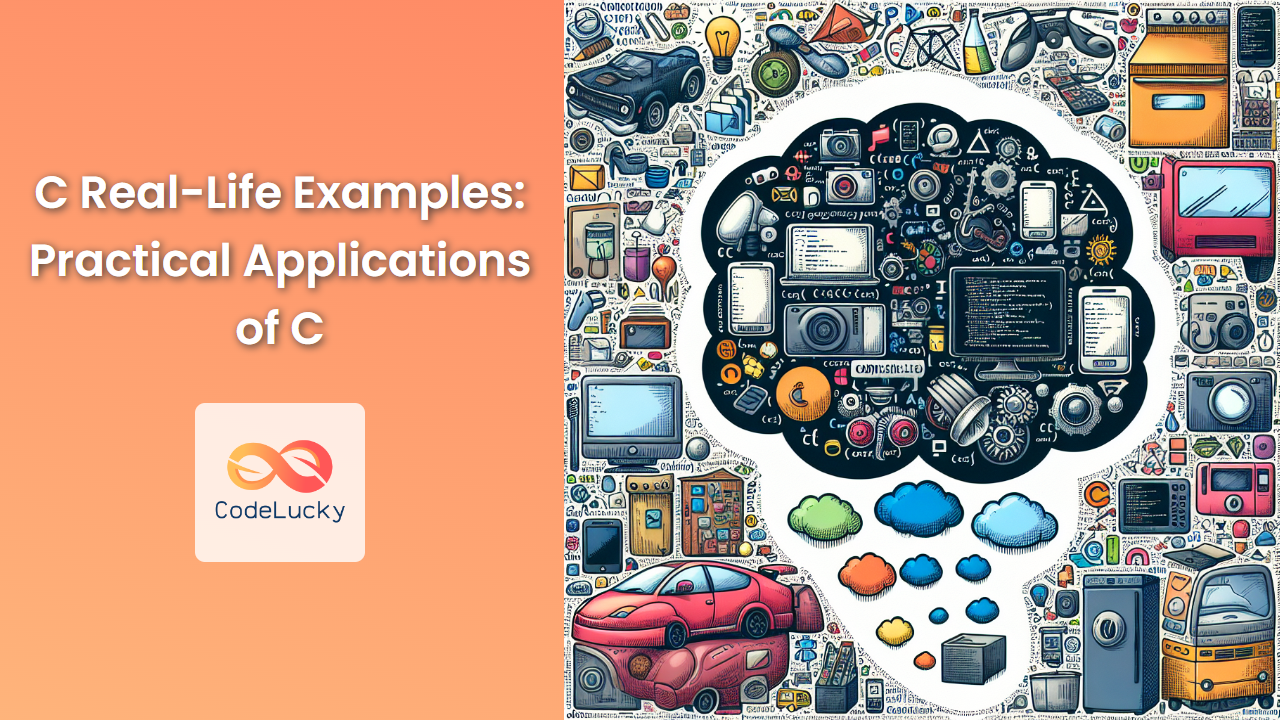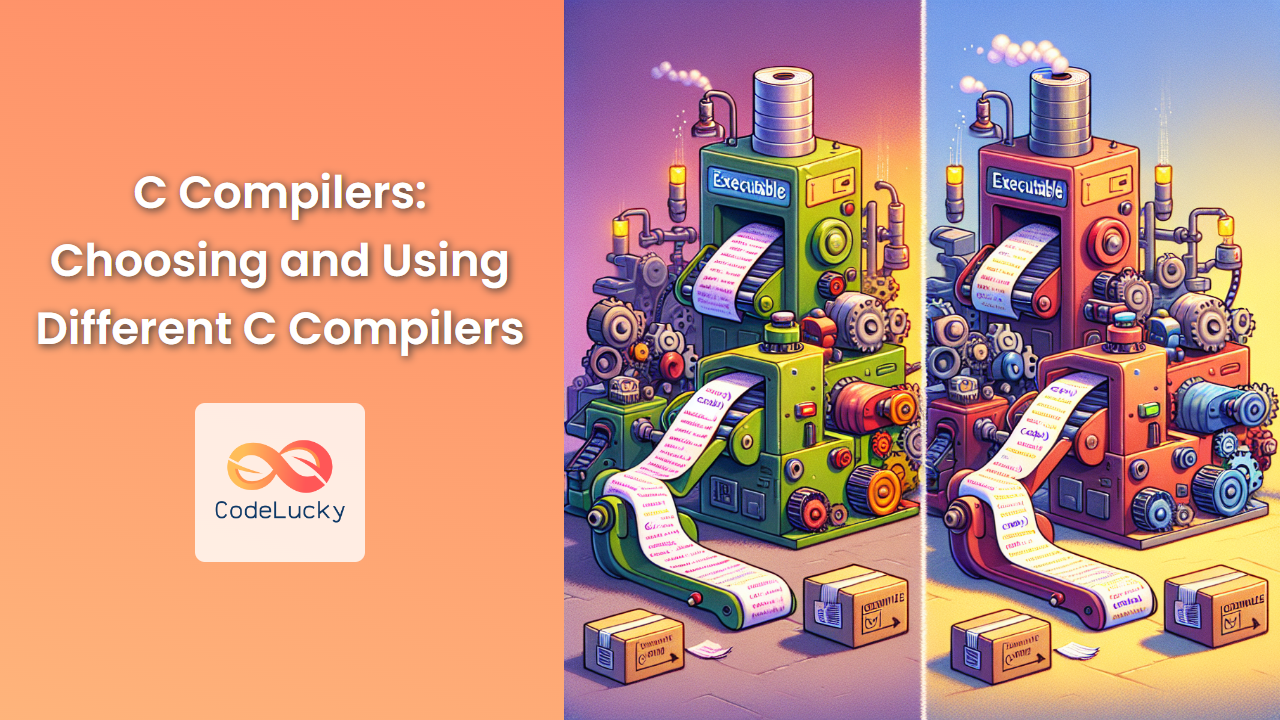In the world of programming, decision-making is a crucial aspect of creating efficient and flexible code. While if-else statements are commonly used for conditional branching, C provides a powerful alternative: the switch statement. This versatile control structure allows developers to handle multiple conditions elegantly and efficiently. In this comprehensive guide, we'll dive deep into the C switch statement, exploring its syntax, usage, and best practices.
Understanding the Switch Statement
The switch statement in C is designed to simplify the process of comparing a variable against multiple possible values. It provides a more readable and often more efficient alternative to long chains of if-else statements when dealing with multiple conditions based on a single variable.
Basic Syntax
switch (expression) {
case constant1:
// code to be executed if expression == constant1
break;
case constant2:
// code to be executed if expression == constant2
break;
...
default:
// code to be executed if expression doesn't match any case
}
Let's break down the components:
expression: This is the value being tested. It's typically a variable or an expression that evaluates to an integer or character.caselabels: Eachcaseis followed by a constant value and a colon.breakstatements: These are used to exit the switch block after a case is executed.defaultlabel: This is optional and specifies what to do if none of the cases match.
🚀 Practical Examples
Let's explore some practical examples to see how the switch statement can be used in various scenarios.
Example 1: Simple Day of the Week
#include <stdio.h>
int main() {
int day;
printf("Enter a number (1-7): ");
scanf("%d", &day);
switch(day) {
case 1:
printf("Monday");
break;
case 2:
printf("Tuesday");
break;
case 3:
printf("Wednesday");
break;
case 4:
printf("Thursday");
break;
case 5:
printf("Friday");
break;
case 6:
printf("Saturday");
break;
case 7:
printf("Sunday");
break;
default:
printf("Invalid day number");
}
return 0;
}
In this example, we use a switch statement to convert a number input (1-7) into the corresponding day of the week. The default case handles any input outside this range.
| Input | Output |
|---|---|
| 1 | Monday |
| 5 | Friday |
| 8 | Invalid day number |
Example 2: Calculator
Let's create a simple calculator that performs basic arithmetic operations based on user input.
#include <stdio.h>
int main() {
double num1, num2;
char operator;
printf("Enter two numbers: ");
scanf("%lf %lf", &num1, &num2);
printf("Enter an operator (+, -, *, /): ");
scanf(" %c", &operator);
switch(operator) {
case '+':
printf("%.2f + %.2f = %.2f", num1, num2, num1 + num2);
break;
case '-':
printf("%.2f - %.2f = %.2f", num1, num2, num1 - num2);
break;
case '*':
printf("%.2f * %.2f = %.2f", num1, num2, num1 * num2);
break;
case '/':
if(num2 != 0)
printf("%.2f / %.2f = %.2f", num1, num2, num1 / num2);
else
printf("Error: Division by zero!");
break;
default:
printf("Error: Invalid operator!");
}
return 0;
}
This calculator example demonstrates how switch can be used with character inputs. It also shows how we can include more complex logic within each case, such as the division by zero check.
| Input | Output |
|---|---|
| 10 5 + | 10.00 + 5.00 = 15.00 |
| 7 3 * | 7.00 * 3.00 = 21.00 |
| 10 0 / | Error: Division by zero! |
| 5 2 % | Error: Invalid operator! |
🔍 Advanced Switch Techniques
Now that we've covered the basics, let's explore some advanced techniques and considerations when using the switch statement.
Fall-through Behavior
In C, if you omit the break statement, execution will "fall through" to the next case. This can be useful in certain scenarios where you want multiple cases to execute the same code.
#include <stdio.h>
int main() {
int month;
printf("Enter month number (1-12): ");
scanf("%d", &month);
switch(month) {
case 12:
case 1:
case 2:
printf("Winter");
break;
case 3:
case 4:
case 5:
printf("Spring");
break;
case 6:
case 7:
case 8:
printf("Summer");
break;
case 9:
case 10:
case 11:
printf("Autumn");
break;
default:
printf("Invalid month");
}
return 0;
}
In this example, we use fall-through behavior to group months into seasons. Multiple cases lead to the same output without needing to repeat the printf statement.
| Input | Output |
|---|---|
| 1 | Winter |
| 7 | Summer |
| 13 | Invalid month |
Nested Switch Statements
You can nest switch statements inside each other, allowing for more complex decision-making structures.
#include <stdio.h>
int main() {
int department, year;
printf("Enter department (1-CS, 2-EE): ");
scanf("%d", &department);
printf("Enter year (1-4): ");
scanf("%d", &year);
switch(department) {
case 1:
printf("Computer Science - ");
switch(year) {
case 1:
printf("Introduction to Programming");
break;
case 2:
printf("Data Structures");
break;
case 3:
printf("Algorithms");
break;
case 4:
printf("Machine Learning");
break;
default:
printf("Invalid year");
}
break;
case 2:
printf("Electrical Engineering - ");
switch(year) {
case 1:
printf("Basic Circuits");
break;
case 2:
printf("Digital Electronics");
break;
case 3:
printf("Microprocessors");
break;
case 4:
printf("Power Systems");
break;
default:
printf("Invalid year");
}
break;
default:
printf("Invalid department");
}
return 0;
}
This example uses nested switch statements to determine a course based on both department and year inputs.
| Department | Year | Output |
|---|---|---|
| 1 | 2 | Computer Science – Data Structures |
| 2 | 3 | Electrical Engineering – Microprocessors |
| 3 | 1 | Invalid department |
🛠️ Best Practices and Considerations
When using switch statements in C, keep these best practices in mind:
-
Use
breakstatements: Always includebreakstatements unless you specifically want fall-through behavior. -
Default case: Include a
defaultcase to handle unexpected inputs. -
Case order: Arrange cases in a logical order, typically from most to least common or in numerical/alphabetical order.
-
Readability: Use
switchwhen you have multiple conditions based on a single variable. For complex conditions,if-elsemight be more appropriate. -
Constant expressions: Case labels must be constant expressions. Variables or function calls are not allowed.
-
Data types: The
switchexpression and case labels should be of integer type (includingchar).
🎭 Switch vs. If-Else
While switch and if-else can often be used interchangeably, each has its strengths. Let's compare them:
#include <stdio.h>
int main() {
char grade;
printf("Enter your grade (A, B, C, D, or F): ");
scanf(" %c", &grade);
// Using switch
printf("Using switch:\n");
switch(grade) {
case 'A':
printf("Excellent!\n");
break;
case 'B':
printf("Good job!\n");
break;
case 'C':
printf("Average performance.\n");
break;
case 'D':
printf("Need improvement.\n");
break;
case 'F':
printf("Failed. Please try again.\n");
break;
default:
printf("Invalid grade.\n");
}
// Using if-else
printf("Using if-else:\n");
if(grade == 'A')
printf("Excellent!\n");
else if(grade == 'B')
printf("Good job!\n");
else if(grade == 'C')
printf("Average performance.\n");
else if(grade == 'D')
printf("Need improvement.\n");
else if(grade == 'F')
printf("Failed. Please try again.\n");
else
printf("Invalid grade.\n");
return 0;
}
This example demonstrates how the same logic can be implemented using both switch and if-else. The switch version is often considered more readable and potentially more efficient for multiple conditions based on a single variable.
| Input | Output (both switch and if-else) |
|---|---|
| A | Excellent! |
| C | Average performance. |
| G | Invalid grade. |
🎯 Performance Considerations
In many cases, compilers can optimize switch statements to be more efficient than equivalent if-else chains, especially when there are many cases. This is often done using jump tables, which allow for O(1) time complexity regardless of the number of cases.
However, the actual performance can depend on various factors, including the specific compiler and the nature of the cases (e.g., whether they're contiguous values or spread out).
🚫 Limitations of Switch
While powerful, the switch statement in C has some limitations:
-
Integer types only: The expression in
switchmust evaluate to an integer type. -
Constant case labels: Case labels must be compile-time constants, not variables or expressions.
-
No range checking: Unlike some other languages, C doesn't allow range checking in case labels (e.g.,
case 1...5:). -
Single expression:
switchcan only test equality for a single expression, not complex conditions.
🏁 Conclusion
The switch statement in C is a powerful tool for handling multiple conditions based on a single variable. It offers improved readability and potential performance benefits over long chains of if-else statements. By understanding its syntax, advanced techniques, and best practices, you can write more efficient and maintainable code.
Remember to consider the specific requirements of your program when choosing between switch and if-else. Each has its place in the C programmer's toolkit, and mastering both will make you a more versatile developer.
As you continue to explore C programming, experiment with switch statements in various scenarios. Practice nested switches, fall-through behavior, and compare the readability and performance with equivalent if-else structures. With time and experience, you'll develop an intuition for when and how to best use this powerful control structure in your C programs.
Happy coding! 🖥️💻🚀

